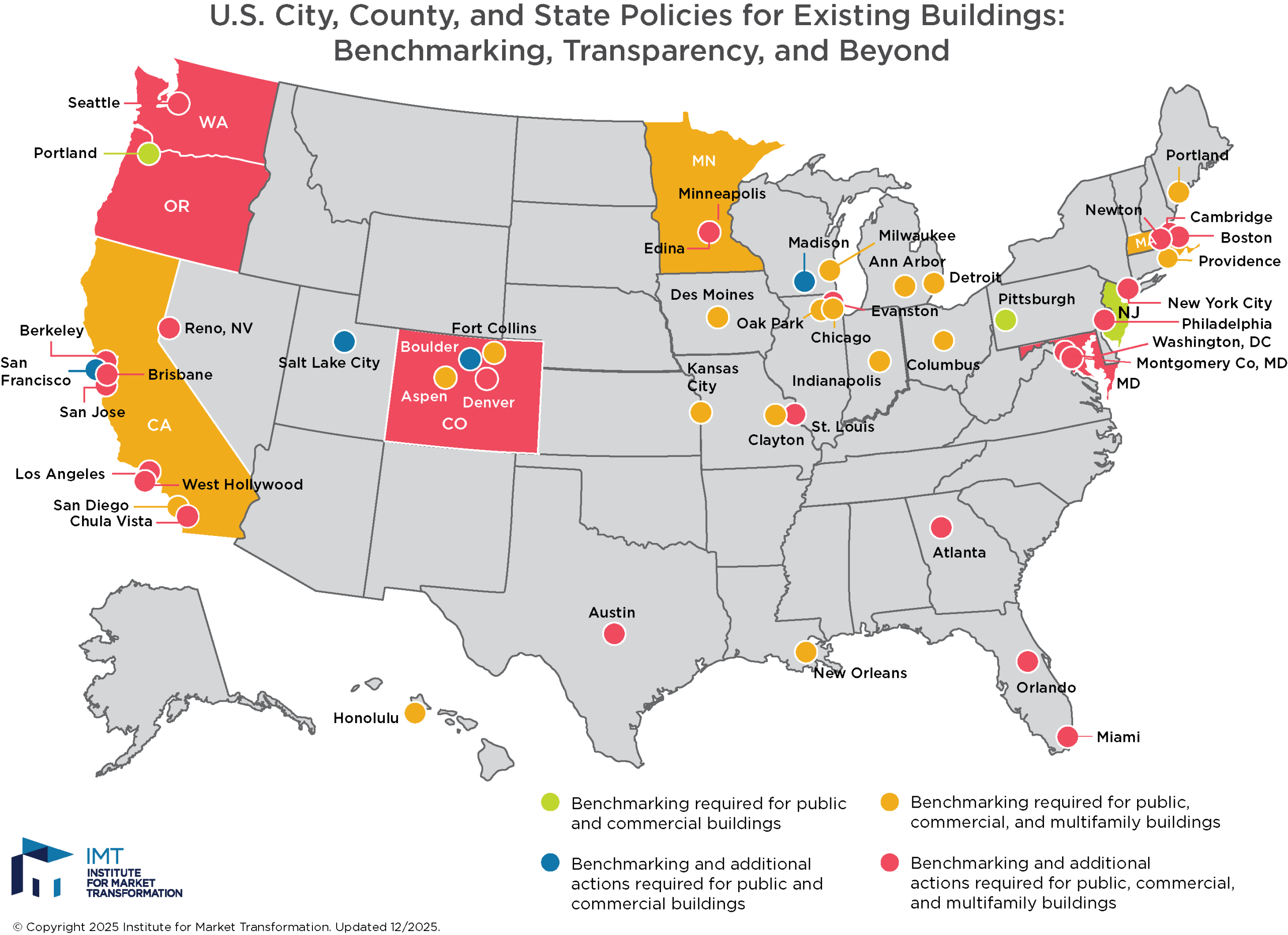After more than a year of private sector and community engagement, Fort Collins, Colo., became the 25th U.S. city to pass a benchmarking and transparency policy for privately owned buildings on December 4. This is a key step in accomplishing Fort Collins’ ambitious climate goal of being carbon neutral by 2050, and follows the City’s leading actions as a C40 award recipient and member community in the Urban Sustainability Directors Network (USDN). Fort Collins’ policy applies to commercial and multifamily buildings 5,000 square feet and larger, and phases in between 2020 and 2023.
IMT is working hand-in-hand with Fort Collins via the City Energy Project, and assisted in the development of the city’s new ordinance. From our vantage point, its passage is unique and exciting for many reasons, including:
- The policy’s square footage threshold is low compared to other ordinances in the U.S. Fort Collins joins Berkeley, Calif., and Portland, Maine, as the jurisdictions with the lowest square footage threshold in the country for this type of building performance policy. IMT’s work with City Energy Project has focused on how individual jurisdictions can customize energy efficiency best practices to most meet their local conditions and needs to deliver significant impact. The process of benchmarking benefits building owners, tenants, and cities of all sizes and compositions; Fort Collins is an example of how benchmarking can be tailored to reflect a smaller local market for deeper impact and wider benefits. Fort Collins’ square footage threshold of 5,000 square feet is directly responsive to the building stock in the city. Covered buildings under the policy (about 1,600 total) represent 30 percent of the total square footage of buildings in the city, and over 53 percent of the total electricity delivered by Fort Collins Utilities (the municipal electric and water utility).
- Fort Collins conducted robust private sector and community engagement to better shape its policy. This is something IMT highly recommends for any jurisdiction pursuing energy efficiency policies. Fort Collins and Fort Collins Utilities convened a building energy scoring working group made up of real estate professionals and other stakeholders affected by the policy that met monthly for a year. In these meetings, group members not only provided direct feedback on their key business drivers and concerns, but also received education on different elements of the policy so that they could provide informed feedback that helped to shape the final staff recommendations to council. For example, the group spent time discussing Fort Collins’ building stock profile so that members could have an informed discussion about the potential square footage threshold for compliance, providing valuable community feedback. This type of stakeholder engagement allowed Fort Collins to better understand what it may take for affected buildings to comply with the ordinance. (For those interested in learning more, all agendas, minutes, presentations and outcomes of that work are publicly available on the city’s website.)
- The City and municipal utility worked in close coordination during the development of the policy, and will coordinate on implementation. The success of benchmarking relies heavily on providing the appropriate people with access to the appropriate building data, as well as creating channels for follow-up on potential action. As Fort Collins heads into implementation, its strong working relationship with Fort Collins Utilities will help in ensuring the availability of whole-building data for building owners complying with the ordinance. It also will be critical in making the results of the benchmarking program meaningful, as the Utility offers energy efficiency services to customers in the city and can follow up with specific programs and actions that building owners can take to improve performance. The Utility offers a wide array of energy efficiency incentives and support services, and the Building Energy Scoring program will provide the Utility with the information it needs to help prioritize buildings that can most benefit from outreach and engagement. Providing this support to building owners helps them to improve their energy performance, and improved energy performance helps the city meet its sustainability goals.
Interested in learning more about this legislation? Check out Fort Collins’ official press release here. If you’re interested in learning more about any of specifics of benchmarking policies in other jurisdictions across the U.S., visit IMT’s sister site, BuildingRating.org.

